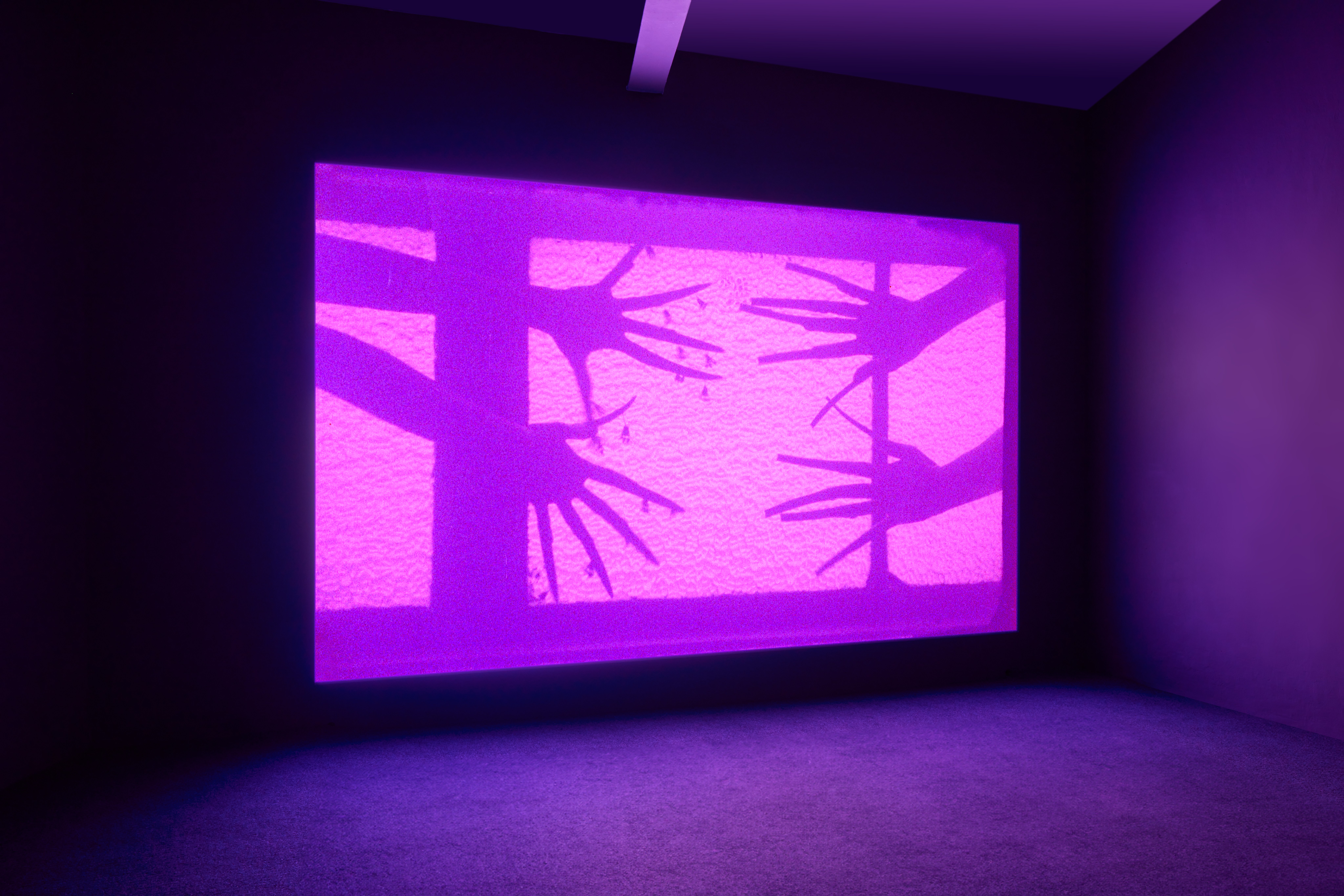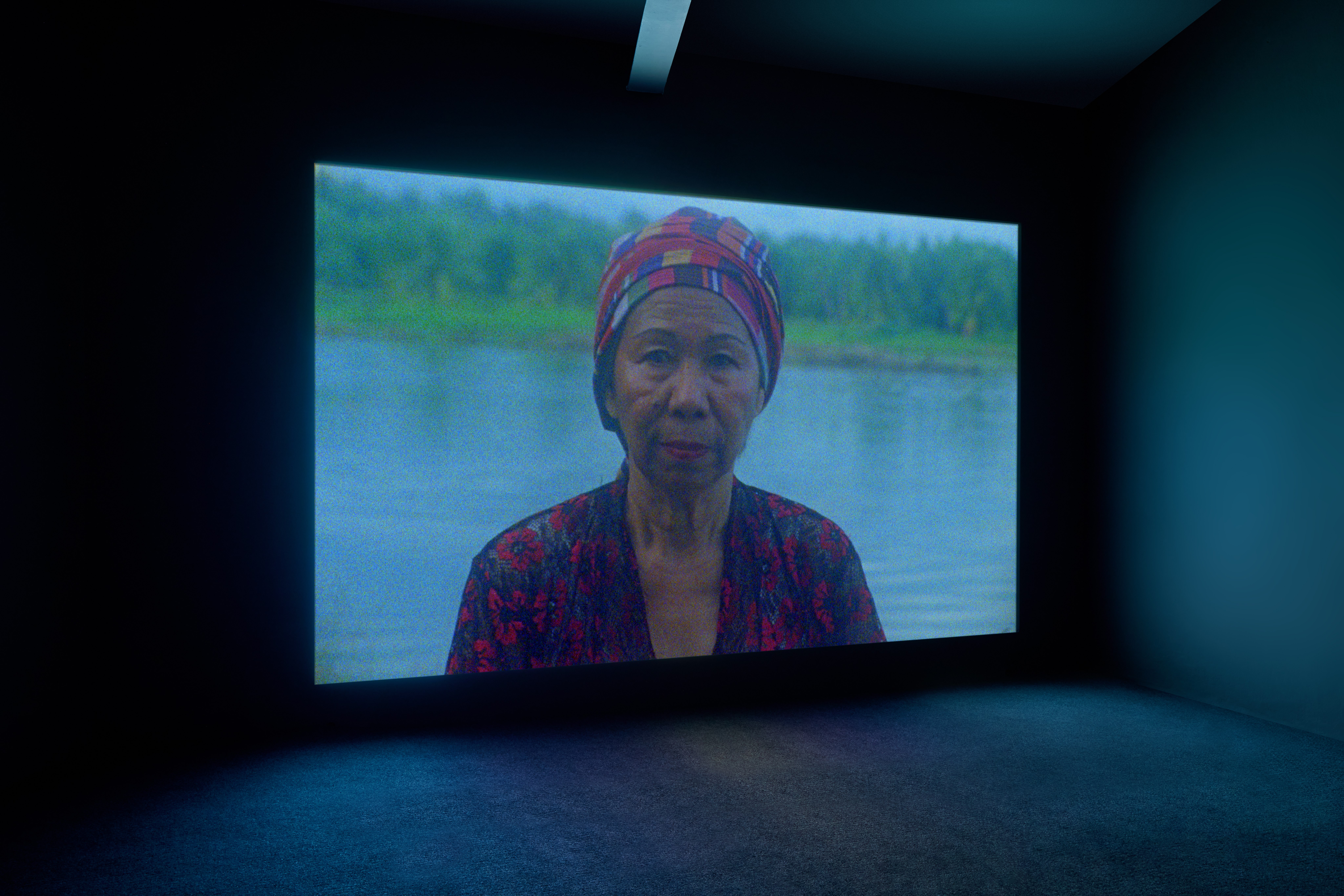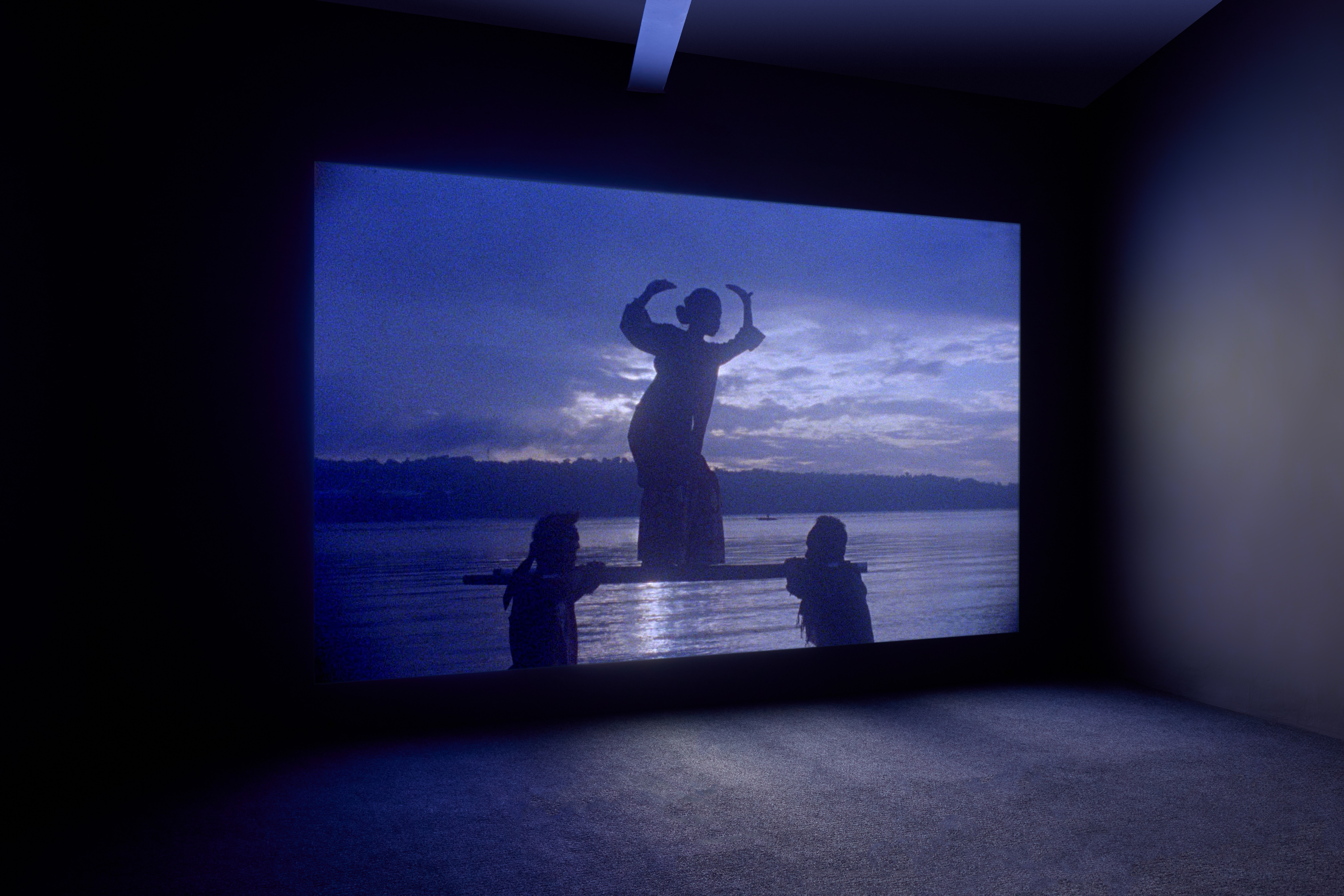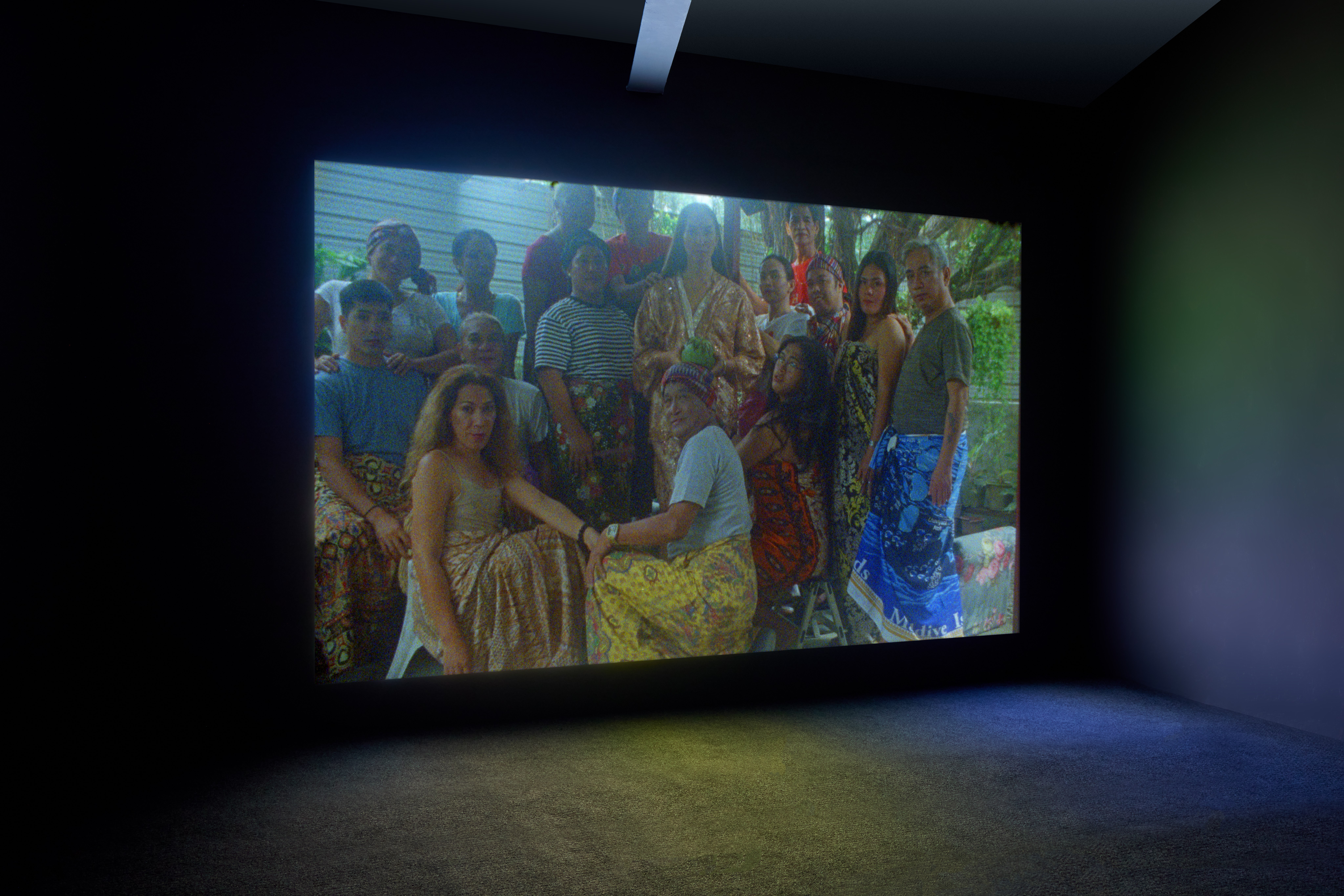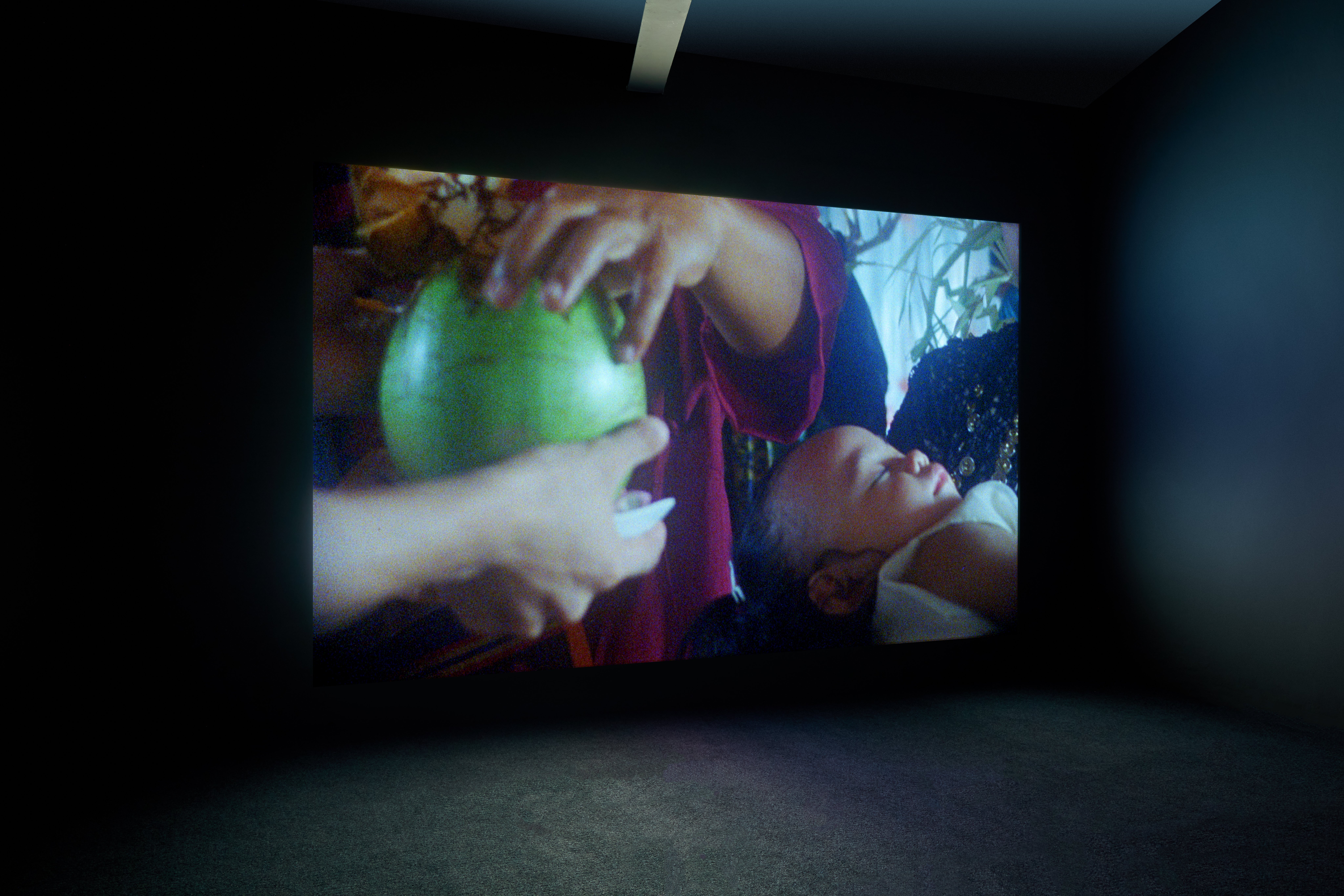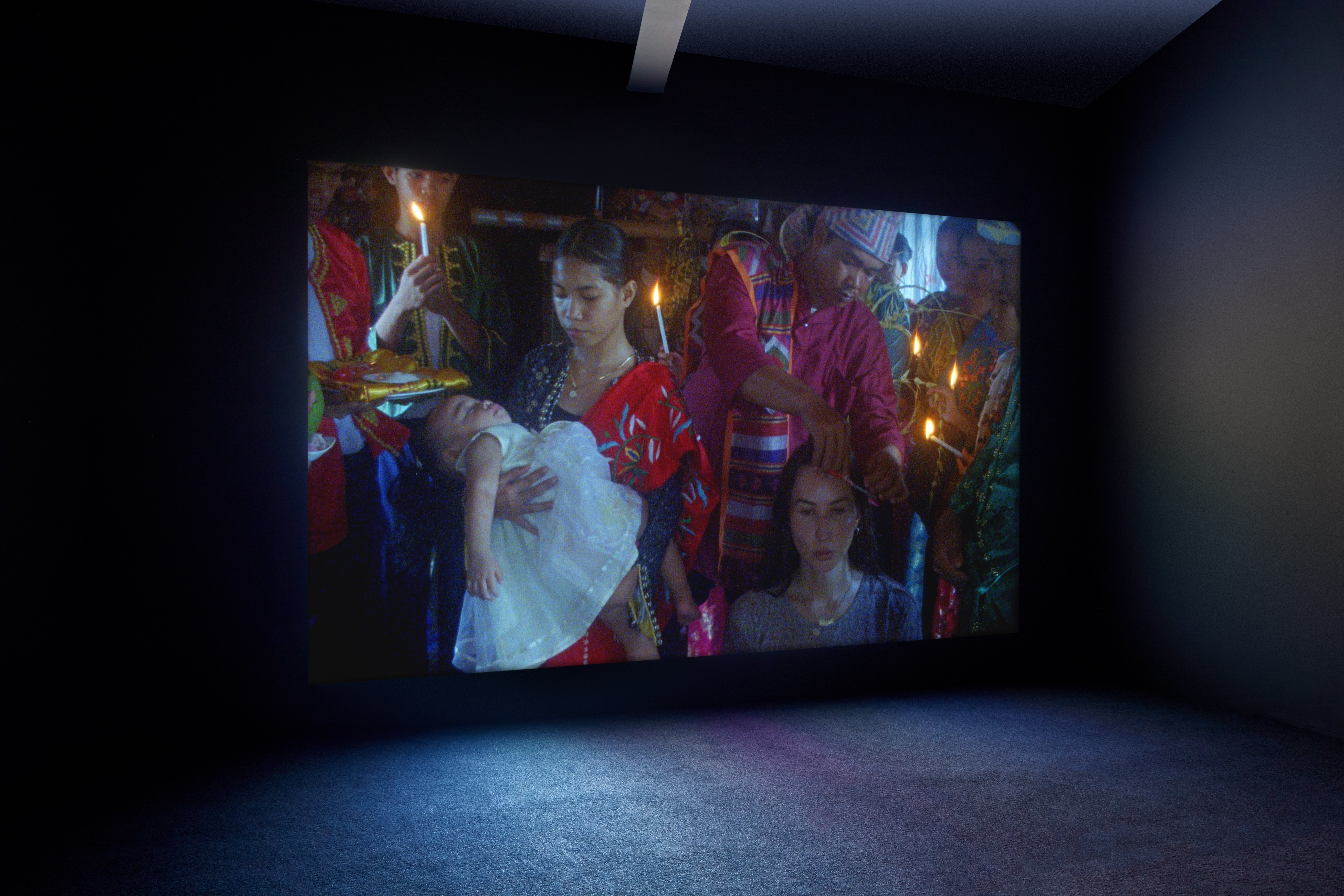Auto Italia presents Biraddali Dancing on the Horizon, a new moving image commission and the first solo exhibition in the UK by Filipina-Australian artist Bhenji Ra.
Biraddali Dancing on the Horizon (30 minutes, 16mm, 2024) documents a process of ancestral, intergenerational learning. Its starting point is a journey taken by Ra with her teacher and collaborator Sitti Airia Sangkula Askalani-Obeso. A Tausug elder, Obeso is a cultural bearer of the pangalay, a pre-Islamic dance of the Tausug people of the Sulu Archipelago and the eastern coast Bajau of Saba in the Philippines.
In the film, Obeso guides Ra on how to practice pangalay through a ritual journey into a dreamlike, ancestral plane. Whilst relaying the history of the pangalay, Ra and Obeso explore the cultures and structures of movement practices in the Sulu Archipelago and their relationship to precolonial understandings of gender and identity, in particular the bantot or bayot relating to a trans feminine person.
Falling into ritual, dream and ancestral plane, Obeso and Ra develop and trouble the roles of student, teacher, mother and daughter. A fabulation unfolds in which a celestial being that resembles a woman with wings, known across the Sulu as the Biraddali, reveals itself through dialogue and dreaming. The word ‘Biraddali’ is usually translated from Tausug or other Samal languages as ‘angel’ or ‘skymaiden’. They are believed to live in the sky and to possess beauty surpassing that of any earthly woman. Some tales suggest that they have the power to change their form.
Initially appearing documentarian in style, Biraddali Dancing on the Horizon unravels into its own mythology as the bond of mentor-student becomes an offering that weaves bantot and Tausug genealogies together. As the imaginal journey unfolds, the dance of pangalay and the figure of the Biraddali become symbolically interrelated, with Ra interpreting the Biraddali as a trans, non-human figure and the originator of the dance.
Biraddali Dancing on the Horizon foregrounds a pedagogy of decolonial choreography. It develops languages of movement that connect vocabularies of gender with past and present colonial realities in the Asia-Pacific region. This continues Ra’s ongoing work exploring methods of performance that decentre hegemonic Western dance conventions, and which engage critically with expressions of gender and sexual difference.
A new musical score composed by Tati au Miel accompanies the film.
Biraddali Dancing on the Horizon is co-commissioned by Auto Italia, London and Western Front, Vancouver.
Auto Italia’s commissions are made possible by our Exhibition Circle and Member supporters.
Bhenji Ra (b. 1990, Australia) is a Filipina-Australian artist currently based on Gadigal land, Eora Nation. Ra’s projects combine choreography and video and are deeply rooted in social justice practices. Her recent exhibitions include Art Gallery of New South Wales, Sydney (2023); Plimsoll Gallery, Tasmania (2023); Museum of Contemporary Art Australia, Sydney (2022); National Gallery of Australia, Canberra (2021); 22nd Biennale of Sydney (2020); M+ Museum, Hong Kong (2017); and the 8th Asia Pacific Triennial at the Queensland Art Gallery, Gallery of Modern Art, Brisbane (2015–16).

